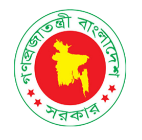At his interview, Walter Mwasaa, Chief of Party for SHOUHARDO III with CARE Bangladesh, shares his insights on the conference theme that is food security resilience at the intersection of development and emergency, as well as key takeaways for the 3-day event. The TOPS/FSN Network Asia Regional Knowledge Sharing Meeting was held on October 2-4, 2018 in Bangkok, Thailand.
Interviewer: What are your thoughts on the theme that is food security resilience at the intersection of development and emergency?
Walter: So Resilience has been something that I have been personally very passionate about and looking at having a workshop of this kind with all the development people and emergency for coming together to discuss the thing, I think it actually brings the two sectors of work if you like together is very exciting. I’ve spent the last two days and the remaining day talking about how those things come together and really steering the customer resilience, I think is a great thing and not only we are going to be potentially bringing on people into you know not really crossing the divide if you like but pretty much bring them closer because really it’s a continuum. You start from an emergency, you move into I would call it a grey area and I think that’s where you have a conversation about you know how to ensure that we don’t fall back into some emergency or we get people into stronger capacities today with that emergency that’s not enough. You need to move them a little further that’s what the development kind of cure, development activities like that. So my reflection is that’s some appropriate topic for while we live in earthquakes, floods, any diseases all that stuff is really what we are looking at and so just being able to converge that at resilience is the best thing we’ll be doing in our programing in this image.
Interviewer: Any thoughts that is relevant to you the Rohingya planning that you just finished presenting?
Walter: (Suddenly I mean) We’re talking about an emergency that’s going to be around for a bit, we don’t know for how long and so until we move people and start intervening in that takes away the kind of emergency, it’s like running in a race, you’re running and you’re tired, at some point your heart comes back to normal. So your life is treated as if you on the track running that you just being confused with loopholes, then you stop living. I think we need to moving refugees and the people that we work with in the Rohingya camps to get more back to their, back to a normal life. We have to move away from that first place and hand out you know approach to a programming, so how that it goes. We’ve heard about the challenges, it’s going to get a lot of work, different actors and I think eventually we’ll just come together so what we are building it’s the capacities, cooperatives, restoring capacities which is what resilience is all about. So whether they stay in Bangladesh or go back to Myanmar, we need to have them ready for what tomorrow looks like in an uncertain world as we live in.
Interviewer: What do you think is the value out of having these regional conferences right like learning meetings that invite lot of different stakeholders and even maybe partners in the same country?
Walter: So today for the partners in the same country it’s probably, I would say probably criminal that we don’t do this a lot, we should be pretty together in what we do, should be looking at our own activities and making those connections. But when you begin to think about a regional area, someone seated in, say in New Delhi may not be as aware about their Rohingya issues and now they are evolved, but who knows when the next one comes. So how will people say in Northern Pakistan prepare for a potential influx from Afghanistan as we had the other day, so for me it’s the connections that we are making but also the real learnings and the practical actions that people are taking that I think are the key thing about this as I listen to conversations, I’m thinking how does it apply to what I do, how will they implement that, what are the realities people went through and then ultimately I have a connection right so I can walk over to that individual and talk to them about it, so it’s awareness, it’s a knowledge but also that resource, if we are practicing for the whole system becomes for each other, we do our work.


